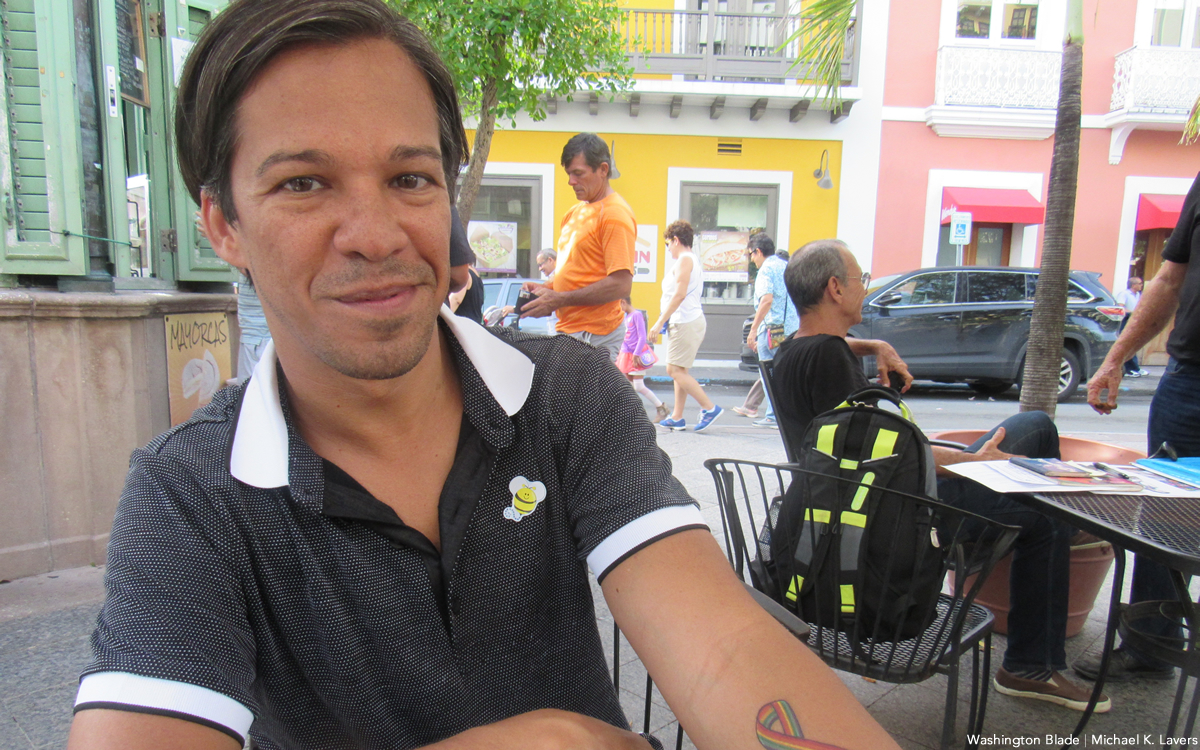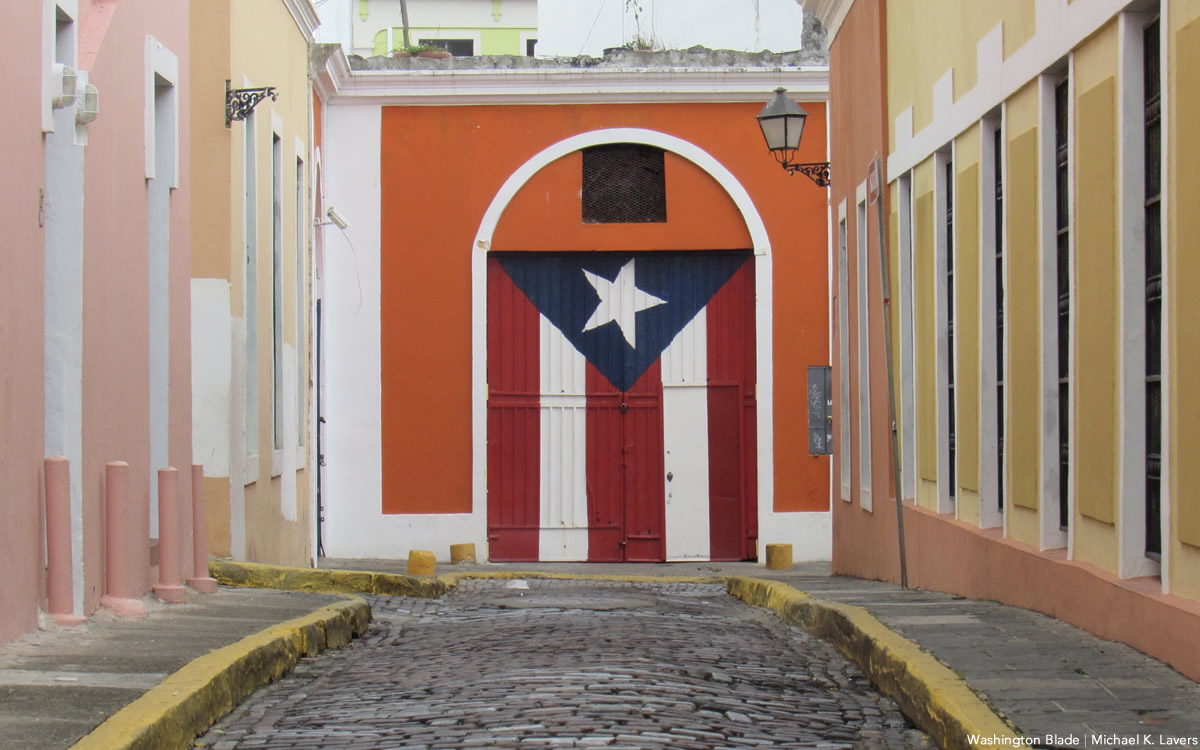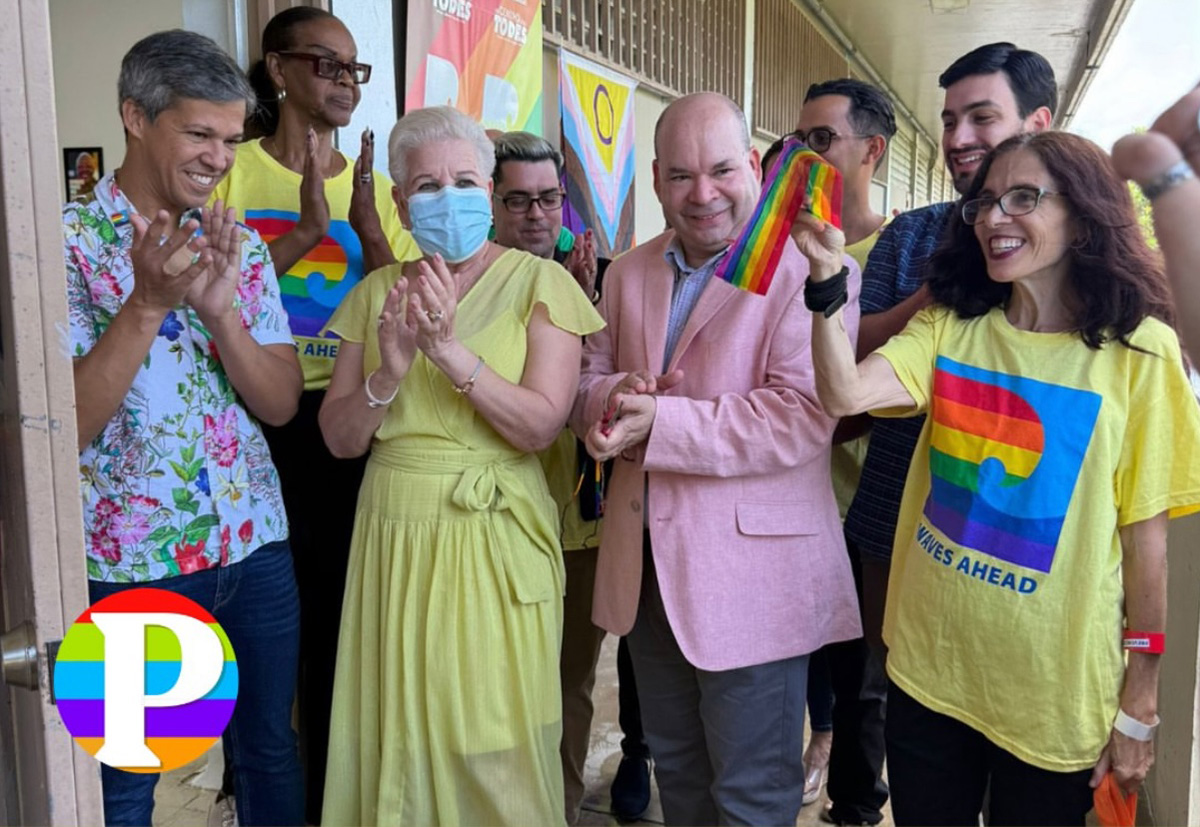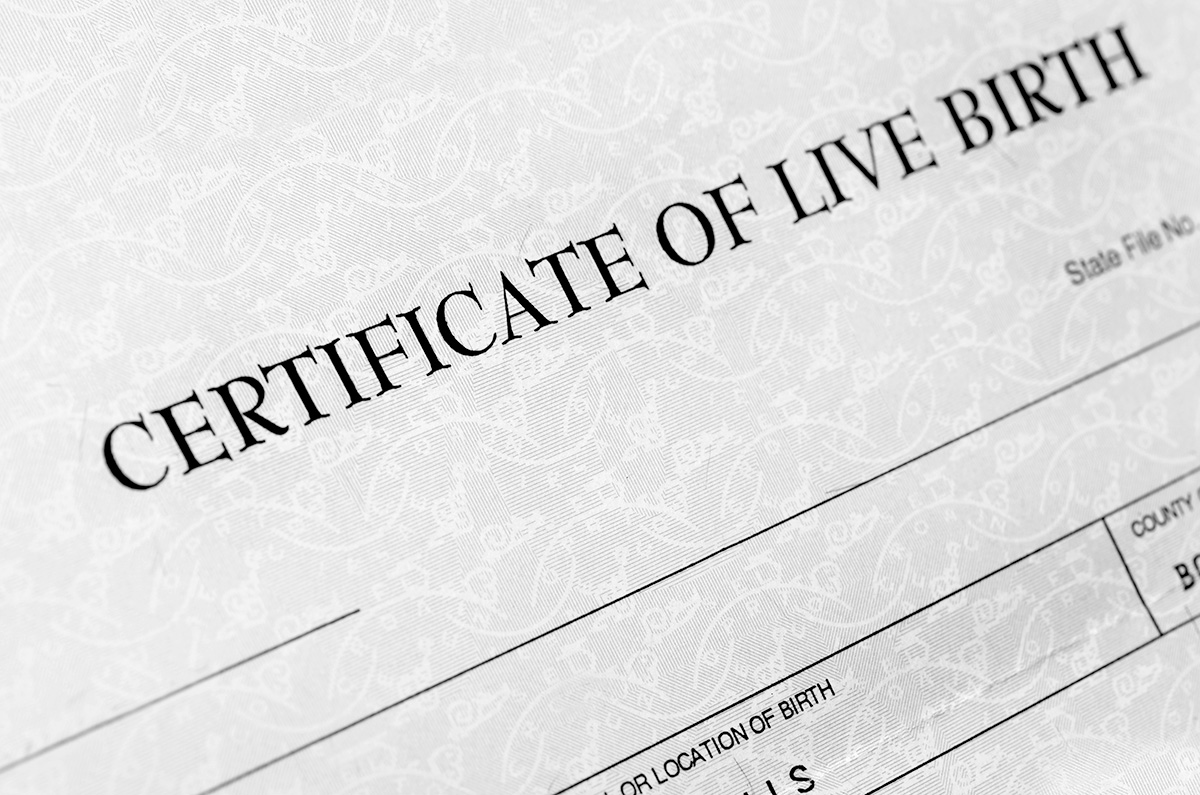Puerto Rico
Puerto Rico activist once again loses access to Facebook account
Pedro Julio Serrano has filed police complaint against anti-LGBTQ religious leaders

A prominent activist in Puerto Rico says he is once again unable to access his verified Facebook page.
Pedro Julio Serrano, founder of Puerto Rico Para Todes, a Puerto Rican LGBTQ advocacy group, sent to the Washington Blade a screenshot of an email he sent to Meta, Facebook’s parent company, on July 24 that said he has “been trying to recover my page since July 19 when it was hacked.”
The link to Serrano’s Facebook page has been changed to facebook.com/beonrightpath.
“The Meta Pro Team is telling me that I can no longer recover it,” wrote Serrano. “I have to file this impersonating report in order to close the other page that is impersonating me, but it tells me that the url of the impersonating profile is invalid, even though my friends and family can still see the page. I was verified previous to the Meta Verified program because I am a public figure.”
“I beg you to delete the account whose url is facebook.com/beonrightpath,” he added.
Dev, a Meta Pro Team representative, responded to Serrano’s email on July 25. The representative provided him with his case number, and added “your call has been scheduled and you might receive a call shortly.”
Hitesh, a Meta Support Pro representative, on July 30 emailed Serrano and asked him to provide a copy of a photo ID and a signed statement. The same Meta Support Pro representative in an email to Serrano on July 23 provided him with steps on how to report the issue to Facebook.
Arthur, another Meta Pro Team representative, sent a similar email to Serrano on July 19. Joy, yet another Meta Pro Team representative, sent a similar email to Serrano the next day.
Nick, a second Meta Support Pro representative emailed Serrano on Aug. 11.
“I completely understand that the delay in the response from the dedicated team might be affecting your work,” wrote the representative. “I apologize for the inconvenience. Trust me, I am continuously trying to get in touch with (sic) the regarding the update and I am very positive that we will be getting a revert soon.”
“Now my request to you is that please allow me few more time (sic) so that once I get the update I will myself deliver the message to you,” added the representative. “I really appreciate your patience, I do.”
“One of my main tools for activism is my Facebook page because it connects me to a network of leaders and activists who spread the word and take action on matters related to our struggle,” Serrano told the Blade on Friday.
“My page was verified before the subscription service because of my public profile nationally and internationally,” he added. “It’s the way that people can know that what is posted comes from me. I need this tool to continue the work against the bigots who want to take us back.”
Serrano said he last spoke with a Meta representative on the telephone two weeks ago. He did acknowledge “they have been writing to me almost every day asking me for more time to resolve the issue.”
“I thank the Meta support group for always responding, even if it takes a few days; but the issue hasn’t been resolved,” Serrano told the Blade on Friday. “They have all my info, copies of my IDs, a signed statement, everything. They know it’s me. They just need to help me recover my page.”
Meta has not responded to the Blade’s requests for comment.
Religious fundamentalists launch ‘campaign of harassment and threats’ against Serrano
Serrano in 2020 was unable to access his Facebook pages for more than two months.
He received an alert in August 2020 that said he violated community guidelines and was “pretending to be a well-known person or public figure.” Serrano on Oct. 21, 2020, received a message from Facebook that said his suspension was a “mistake” and his access had been restored.
Serrano in a complaint he filed with the Puerto Rico Police Department on July 12 said “fundamentalist leaders” in the U.S. commonwealth have launched “a campaign of harassment and threats” against him. Serrano lost access to his verified Facebook page a week later.
Serrano on Friday told the Blade his inability to access his Facebook account is “related” to the complaint he filed.
“The last time that it happened in 2020 I was subjected to a similar public attack from fundamentalist leaders,” he said. “It is not a coincidence.”
Puerto Rico
Bad Bunny shares Super Bowl stage with Ricky Martin, Lady Gaga
Puerto Rican activist celebrates half time show

Bad Bunny on Sunday shared the stage with Ricky Martin and Lady Gaga at the Super Bowl halftime show in Santa Clara, Calif.
Martin came out as gay in 2010. Gaga, who headlined the 2017 Super Bowl halftime show, is bisexual. Bad Bunny has championed LGBTQ rights in his native Puerto Rico and elsewhere.
“Not only was a sophisticated political statement, but it was a celebration of who we are as Puerto Ricans,” Pedro Julio Serrano, president of the LGBTQ+ Federation of Puerto Rico, told the Washington Blade on Monday. “That includes us as LGBTQ+ people by including a ground-breaking superstar and legend, Ricky Martin singing an anti-colonial anthem and showcasing Young Miko, an up-and-coming star at La Casita. And, of course, having queer icon Lady Gaga sing salsa was the cherry on the top.”
La Casita is a house that Bad Bunny included in his residency in San Juan, the Puerto Rican capital, last year. He recreated it during the halftime show.
“His performance brought us together as Puerto Ricans, as Latin Americans, as Americans (from the Americas) and as human beings,” said Serrano. “He embraced his own words by showcasing, through his performance, that the ‘only thing more powerful than hate is love.’”
Puerto Rico
Puerto Rico’s largest LGBTQ organization struggling amid federal funding cuts
Waves Ahead lost two grants from Justice Department, HUD

A loss of federal funds has forced Puerto Rico’s largest LGBTQ organization to scale back its work on the island.
Waves Ahead earlier this year lost upwards of $200,000 for a restorative justice program that the Justice Department funded through a three-year grant.
The U.S. Department of Housing and Urban Development has also rescinded a $170,000 annual grant that Waves Ahead used to sustain Soraya’s House, a transitional housing program for LGBTQ people in Cabo Rojo, a municipality in Puerto Rico’s southwest coast. Puerto Rico’s Women’s Advocate Office, known by the acronym OPM, earlier this year also denied Waves Ahead’s application to receive more funding for its work to combat anti-LGBTQ violence.
OPM distributes STOP (Services, Training, Officers, and Prosecutors) Violence Against Women Formula Program funds it receives from the Justice Department to grant recipients in Puerto Rico.
Waves Ahead Executive Director Wilfred Labiosa during an interview with El Nuevo Día, a Puerto Rican newspaper, last month said his organization between October 2023 and January 2025 received more than $110,000 from OPM. (The Trump-Vance administration took office on Jan. 20. Puerto Rico Gov. Jenniffer González Colón, a Republican who supports President Donald Trump, took office on Jan. 2.)
Labiosa during an interview with the Washington Blade said Waves Ahead has lost 60 percent of its total budget.
The cuts have forced Waves Ahead to close its community center in Loíza, a municipality that is roughly 20 miles east of San Juan, the Puerto Rican capital. Waves Ahead has also had to curtail its restorative justice program that it operates with the Puerto Rico Cultural Center in Chicago.
Community centers continue to operate in San Juan, Cabo Rojo, Maunabo, and Isabela.
“People were really gaining a lot of skills. People were really involved,” Labiosa told the Blade.
“That was just pulled like a big band-aid right off the skin,” he said, referring to when he learned the Justice Department had rescinded the grant.

Waves Ahead Executive Director Wilfred Labiosa and volunteers bring food, water and other relief supplies to Iluminada, an 86-year-old resident of Vieques, Puerto Rico, on Jan. 31, 2018. Hurricane Maria a few months earlier devastated the U.S. commonwealth. (Washington Blade video by Michael K. Lavers)
Labiosa told the Blade the White House’s anti-LGBTQ policies and stance against diversity, equity, and inclusion programs likely contributed to the loss of federal funds.
He noted Waves Ahead lost its HUD funding, even though it was “on the list.”
“People here in Puerto Rico started to receive all the award letters, and all of a sudden we didn’t receive ours,” said Labiosa.
He told the Blade that Waves Ahead is one of two HUD grant recipients in Puerto Rico with LGBTQ-specific language in their profile, but “it is the only organization that has its mission and programming focused on LGBT homeless and people who needed transitional housing.”
“When we approached HUD and approached the local agent of HUD here … they all said, oh, we’re not sure what happened,” said Labiosa. “We tried to meet with everybody involved, but HUD never gave us a phone call. They just sent us an email saying you didn’t answer this question. The question was answered. It was something pitiful.”
Neither HUD nor the Justice Department have responded to the Blade’s request for comment.
Waves Ahead, meanwhile, has turned to the Puerto Rican diaspora in the mainland U.S. and private foundations for support. Labiosa noted local organizations and businesses have also given Waves Ahead money.
Waves Ahead on Giving Tuesday raised $2,778.
“We continue hands on and moving forward,” said Labiosa.
Opinions
The X that exposes everything
Puerto Rico government suspends issuance of birth certificates with ‘X’ gender marker

The government of Puerto Rico has made a clear decision: to turn its back on part of its own people. There are no technical excuses or legal arguments that can disguise what is really happening.
The temporary suspension of the “X” gender marker on birth certificates is a deliberate act of erasure. It is a modern form of exclusion, masked as a defense of the “rule of law.” But let’s be clear: what is being defended here is not justice — it’s the power of a few to impose their fear on the freedom of many.
The federal court order issued by Judge María Antongiorgi Jordán didn’t force anyone into anything. It didn’t erase existing categories or require anyone to identify as nonbinary. It simply allowed those who have never had a truthful box to check on a government form to finally exist legally. But the moment that option challenged the comfort of binary thinking, the entire state apparatus was mobilized against it.
Pride Society Magazine, Puerto Rico’s only LGBTQ media outlet, covered this development in an article titled “Gobierno de Puerto Rico paraliza la X” or “Puerto Rico’s government paralyzes the X.” More importantly, it echoed the voices of those most affected. The LGBTQ+ Federation of Puerto Rico didn’t mince words: the government is spending public money and resources to block a right that has already been validated by the courts. This is not about process or caution — it’s about obstruction. Federation leaders called it exactly what it is: a political move rooted in prejudice, fear, and a desire to appease the most conservative sectors of society.
This isn’t a technical delay. This is a statement of values. It says if your identity doesn’t fit our categories, you don’t exist. If your truth challenges the status quo, you will be denied.
The “X” on a birth certificate doesn’t impose anything. It doesn’t threaten anyone. What it does is allow people to live with dignity, without being forced to lie every time they’re asked to show their ID. That minimal recognition is now being denied, not by accident, but by design.
And it fits perfectly within a broader, dangerous trend — at both the federal and local level. Across the U.S. and Puerto Rico, we are witnessing a calculated rollback of LGBTQ rights, particularly those affecting trans and nonbinary people. What was once progress is now treated as threat. What was once affirmed is now litigated into oblivion. And while legal teams argue and politicians posture, people are being erased in real time.
This has nothing to do with parties, religions, or ideology. It’s about human dignity. It’s about the right to be seen and named for who you truly are. Those who celebrate this suspension are not protecting society — they are upholding a system of exclusion that punishes anyone who dares to be different.
The Pride Society Magazine article is more than just a news story. It is a record of resistance. It documents the courage of those who speak up when institutions stay silent. It reminds us that dignity cannot be postponed, and existence cannot be debated.
The truth is simple: the “X” is not the problem. The real problem is a system that cannot stand to admit that people come in more than two categories. A system that would rather halt a form than recognize a life.
And if we allow that system to keep winning, soon there won’t be any boxes left to check, because we will have allowed ourselves to be erased completely.




















